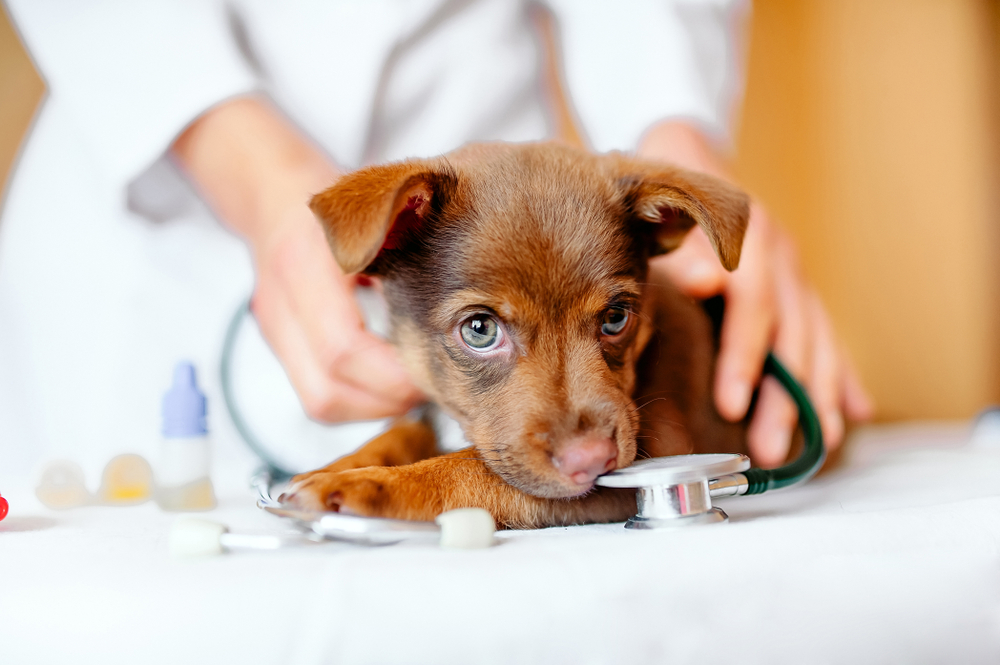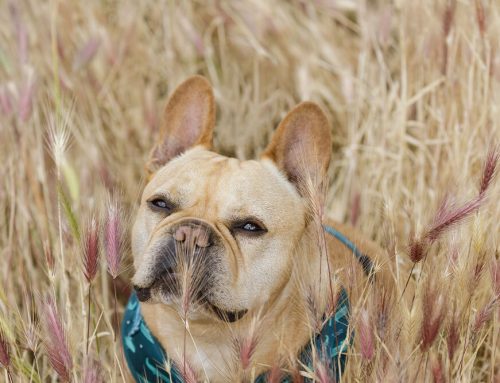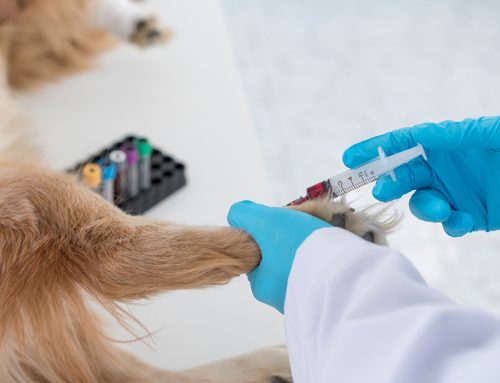Is there anything more exciting than welcoming home a new furry bundle of joy? We don’t think so. While you will be able to soak in many puppy snuggles, kisses, and fun antics, you will also need to provide a lot of care and training to help your puppy grow. Their first year, which they should spend learning about their world, developing a strong immune system, and growing into a happy, healthy dog, is critical. During this time, focus on the following aspects of your puppy’s mental and physical health to help them develop successfully.
Your new puppy’s socialization period
Puppies and kittens undergo a socialization period, when they form most of their opinions about their world, generally from 3 to 14 weeks of age. During this critical period, your puppy should be exposed to as many new things as possible, in a positive manner. When introducing your puppy to a new person or pet, let them approach at their own pace, and reward them for their bravery. Introduce them to new environments, places, textures, sounds, and sights, and acclimate them to bathing, brushing, nail trimming, and other uncomfortable procedures. Key throughout your puppy’s socialization period is to introduce them slowly to everything new, and to reward them frequently with tasty treats.
Your new puppy’s changing dietary needs
When you first welcome your puppy home, they’ll likely eat dry or canned puppy food, since their mother would have begun weaning them at around 4 weeks of age. Focus on a breed-appropriate diet, since unbalanced nutrients can create lifelong health issues. For example, giant-breed puppies require less fat than smaller breeds, and need a calcium to phosphorus ratio as close to 1:1 as possible. A high-protein diet with the proper levels of fat, calcium, and phosphorus will prevent giant breeds from growing too quickly and having poorly developed bones.
After your puppy passes their initial growth spurt and their growth plateaus, they will require fewer calories. And, if your puppy is a small breed who will be spayed or neutered before they are a year old, they will need fewer calories to maintain a healthy weight. Contact us if you’re unsure how much or what type of food your puppy should be eating.
Your new puppy’s training needs
In addition to socialization, your puppy needs basic training to grow up as a well-mannered family member. Many puppy classes that teach canine-interaction skills to basic obedience training will provide a good initial foundation. As your puppy matures, you can enroll them in more advanced obedience classes, as well as fun sporting sessions, like agility or scentwork classes.
While your puppy must learn good manners when interacting with other dogs, they’ll also need to learn how to behave inside your home. Teaching the household rules is another essential step that can usually be accomplished quickly. When house training your puppy, follow these steps:
- Watch your puppy at all times to prevent accidents.
- When your puppy changes activities, such as waking, eating, or playing, take them outside immediately.
- Consistently use the same door, cue word, and spot in the yard.
- Reward your puppy immediately for going to the bathroom outside, because they’ll forget why they’re getting a treat if you wait until you come back indoors.
The elements of successful training are consistency, patience, and plenty of treats. By remembering that your puppy has the attention span of a goldfish, and treats go a long way, you can help your furry pal learn to be a perfect family companion in no time.
Your new puppy’s health care needs

Focusing on your new puppy’s health care is critical for ensuring they develop a strong immune system and remain disease- and parasite-free. In the first few months of your puppy’s life, they’ll require frequent veterinary visits to monitor their growth and to administer immune-boosting vaccinations for serious illnesses. Typically, based on their lifestyle and exposure risk, puppies receive a series of vaccinations every three to four weeks until they’re 16 weeks old. Also, because they grow so rapidly, they should be weighed at every appointment until they reach a stable weight, to ensure they’re receiving the correct dose of heartworm, flea, and tick prevention products. Large-breed puppies in particular quickly outgrow the parasite-prevention weight ranges.
If your puppy is a small breed, they’ll likely be spayed or neutered before they are 1 year old. While they should be given every opportunity to grow and develop, we want to reduce or eliminate their risk for serious reproductive diseases and cancers. We’ll monitor your puppy’s growth, factoring in their breed and expected adult size, and determine the best age for their spay or neuter procedure, to ensure they stay as healthy as possible.
Now that you’ve welcomed your new puppy into your family, we’d like to welcome them into ours! Contact our Boca Midtowne Animal Hospital team to schedule your puppy’s first wellness visit, and get them started off on the right paw.








Leave A Comment